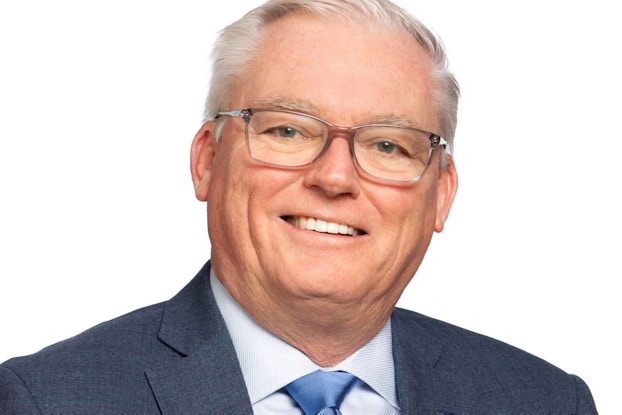
Socially responsible investing — investment that weighs a company’s environmental, social and corporate governance actions along with its financial performance — was the fastest growing global investment trend before the COVID-19 pandemic hit.
Now that investing strategy, known by its shorthand acronym, ESG (environmental, social and corporate governance), has become even more in demand and more timely, according to leading investment firms.
The rise comes as businesses large and small ramp up sustainability initiatives, as consumers increasingly vote with their dollars for companies whose business ethics reflect their values and sensibilities.
“We believe the pandemic has put the ‘s’ [for social] front and center in investors’ minds by showing us which companies are prioritizing the health, safety and financial well-being of their employees, and in many cases, the customers and communities they serve,” Nicole Connolly, portfolio manager and head of ESG Investing at Fidelity Investments, told CO—.
Joseph Keefe, president of Impax Asset Management LLC and president and CEO of Pax World Funds, which created the first sustainable investing fund in the United States, agrees that the pandemic has brought new urgency to sustainable investing.
“Things that make companies more sustainable tend to also make them more resilient, and companies that are more resilient are better positioned to weather the inevitable future crises and downturns and to bounce back more quickly from them,” he said.
CO— interviewed Connolly and Keefe before and after the start of the pandemic and they shared their evolving thoughts on why the investment world increasingly is realizing that helping to make the world a better place also can mean a better return on investment.
We believe the pandemic has put the ‘s’ [for social] front and center in investors’ minds by showing us which companies are prioritizing the health, safety and financial well-being of their employees, and in many cases, the customers and communities they serve.
Nicole Connolly, portfolio manager and head of ESG Investing, Fidelity Investments
Sustainability
With more and more consumers investing in businesses with ethics that mirror their own, read on for ways you can make your business more sustainable.
Sustainable funds emerge as shining star of investment sector
Investment in ESG funds has soared over the past five years and reached record levels in 2019.
At the beginning of this year, Blackrock, the world’s largest asset manager, described the shift toward socially responsible investing, particularly in the area of climate change, as a “fundamental reshaping of finance.”
The shift to socially responsible investing has continued during the pandemic.
Financial services firm Morningstar reported in July that global investments in sustainable funds leapt 72% in the second quarter of this year, and that assets in sustainable funds hit a record high at of the end of June.
Sustainable funds also proved more resilient to the pandemic-triggered market upheaval, recovering more robustly than the overall market, according to the report.

Joseph Keefe, Impax Asset Management: Socially responsible funds ‘are simply better investments’
When Pax World Funds launched in 1971, socially conscious investing was defined in terms of what investors were against. Now, it is viewed more often in terms of what investors want to support, Keefe told CO—.
Pax was created by two United Methodist ministers who were opposed to the Vietnam War and who wanted to start a fund that did not invest in weapons. They also excluded alcohol, tobacco, gambling and other so-called “sin stocks,” Keefe said.
“In its early days, socially responsible investing was really about excluding certain types of investments from portfolios based on values,” he said.
It later evolved to define itself in terms of what it did invest in. In turn, these funds “built investment portfolios focused on companies with better environmental, social and governance practices, based on the notion that those companies are going to help lead the transition to a more sustainable economy,” Keefe said.
How the financial community thinks about socially responsible investing in terms of returns has also evolved. While early ESG investing was often described as investing that makes you feel good but earns less, it is increasingly viewed as a smart way to manage risk in a changing world.
“There’s a whole body of research — study after study — [showing] that companies that do a better job of managing their ESG footprint, that do a better job of managing their climate footprint, do a better job of managing diversity, have more women in leadership, that do a better job as corporate citizens, are quite simply better investments,” he said.
Also driving the shift is demand from individual investors, particularly millennials. “They want their dollars to be part of the solution, rather than part of the problem,” Keefe said.
The pandemic, as well as the racial injustice protests, have caused Impax to look at two new focus areas, Keefe said. The first is environmental justice. It will be looking at companies that operate in minority communities to address air and water pollution concerns. “We have seen during the COVID-19 pandemic that these environmental stressors can contribute significantly to the higher mortality rate among racial minorities in the United States,” he said.
Secondly, Impax will be placing a greater focus on the social aspect of ESG, examining how companies are handling worker health and safety, human resources, customer safety and community impact. While these issues have been of concern to sustainable investors for a long time, “the pandemic has brought a greater sense of urgency,” Keefe said.

Nicole Connolly, Fidelity Investments: A ‘risk management tool’
The pandemic, Connolly told CO—, has provided concrete examples of how companies have reaped the benefits of taking social responsibility seriously. She cited a Canadian apparel retailer that committed to paying its employees while its stores were closed, and that sent 80,000 care packages with leggings and t-shirts to health care workers.
“As a result of those efforts, the company saw a positive spike in social media engagement and reported record online sales — proving that you can do well while doing good,” Connolly said.
Pre-pandemic, many in the investment community believed that the growth of ESG investing was “a bull market phenomenon,” she said. “But what we observed in the March sell-off [when virus spikes triggered a stock market low] was that ESG funds performed inline, if not better, than many traditional market indices,” she said.
ESG investors also seemed less likely to take money out of those funds, indicating either a long-term investing focus or a strong commitment to the causes they are investing in, Connolly said.
ESG investments can also be a risk management tool, she said.
“Evaluating your investments with an ESG lens can help you avoid ESG controversy, whether that’s oil spills or product safety issues or business ethics,” she said.
Part of Connolly’s job involves developing ESG ratings for all of the companies it invests in and thinking about what factors matter most from an ESG perspective for those companies.
“For a tech company, it’s going to be about data privacy and the management of talent and diversity inclusion,” she said. “For an energy company it would be their greenhouse gas emissions, their management of water, the health and safety of their employees.”
Fidelity launched a Women’s Leadership Fund in 2019, which Connolly manages. The fund seeks high-performing companies that prioritize and advance women’s leadership and development. To be considered for the fund, companies must have a woman as a member of its senior management team, or one-third female representation on its board of directors, or specific gender diversity initiatives for hiring, retention and promotion of women.
The pandemic, and its impact on minority communities, as well as the racial injustice protests, also have Fidelity’s ESG team looking more broadly at issues of diversity and inclusion.
“We are putting a renewed emphasis on how companies are prioritizing equality across their organizations and within their communities, as the disparities among racial minorities in facing the coronavirus and structural racism have been brought into stark relief over the last several months,” Connolly said.
CO— aims to bring you inspiration from leading respected experts. However, before making any business decision, you should consult a professional who can advise you based on your individual situation.
Want to read more? Be sure to follow us on LinkedIn!
CO—is committed to helping you start, run and grow your small business. Learn more about the benefits of small business membership in the U.S. Chamber of Commerce, here.







